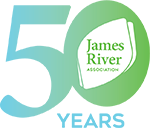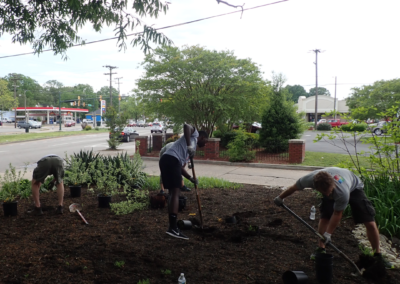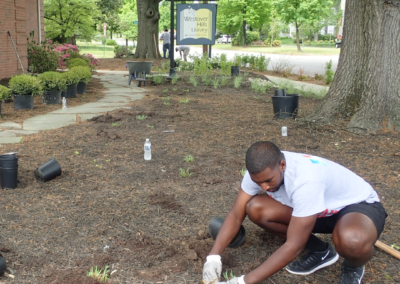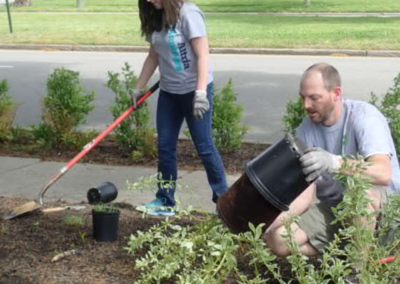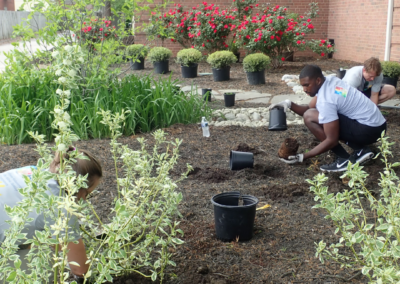Greening Richmond Public Libraries
Stormwater runoff adversely impacts the health of the James River and is a growing source of pollution in the Chesapeake Bay watershed. In an effort to increase public awareness of stormwater runoff and reduce it, the James River Association is working alongside Richmond Public Library, Richmond Department of Public Utilities/RVAH2O, and Four Winds Design to plan, design, and install green infrastructure that manages stormwater at library branches across the City of Richmond. Since 2019, projects have been implemented at Broad Rock Branch, East End Branch, North Avenue Branch, West End Branch, and Westover Hills Branch with additional projects planned for Belmont Branch, Ginter Park Branch, and Hull Street Branch in 2025.
What is stormwater runoff?
Polluted stormwater runoff is a significant contributor of pollution to the James River and its tributaries. Every time it rains, pollutants including sediment, fertilizers, herbicides, pesticides, and bacteria from pet waste flow from our yards into local waterways via stormwater runoff. Stormwater pollution impairs the health of the James and threatens the health of people and wildlife.
What is green infrastructure?
Green infrastructure is a solution to stormwater pollution. Green infrastructure encompasses stormwater management practices including rain gardens, conservation landscaping, and street trees that enhance our built environment and the ecosystem of which we are a part. Green infrastructure contributes to healthier communities by intercepting and filtering stormwater, improving air quality, and reducing the urban heat island effect. It also provides habitat for wildlife living among us.
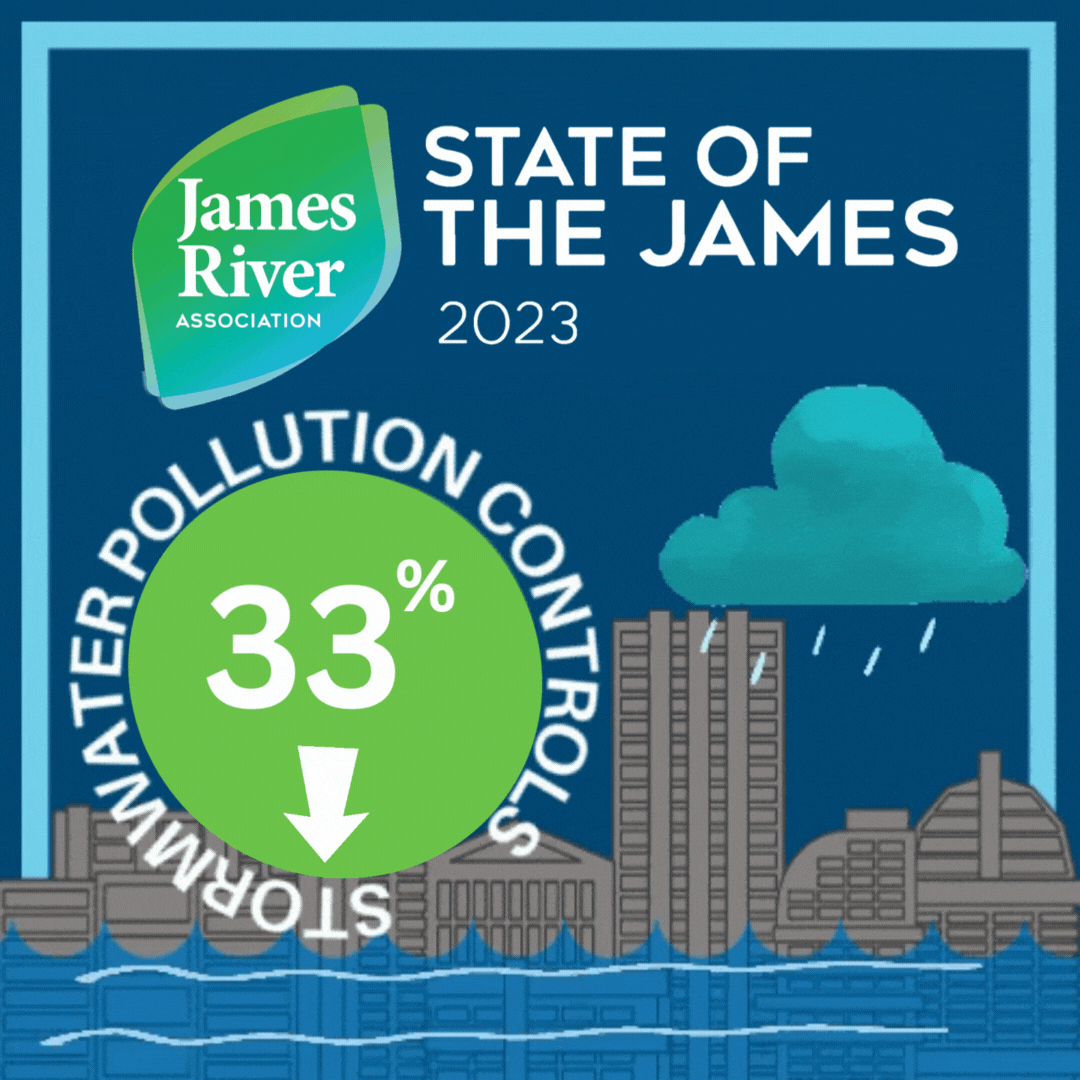
Richmond Public Library Branches Go Green
Belmont Branch Library – 3100 Ellwood Avenue
The Greening Richmond Public Libraries team recently developed a green infrastructure site plan for the Belmont Branch Library. The green infrastructure practices included in the plan are intended to reduce stormwater runoff leaving library grounds while providing the community with access to green space. The plan was informed by community feedback received during a public meeting held at the library on January 29, 2025 and results from an online questionnaire.
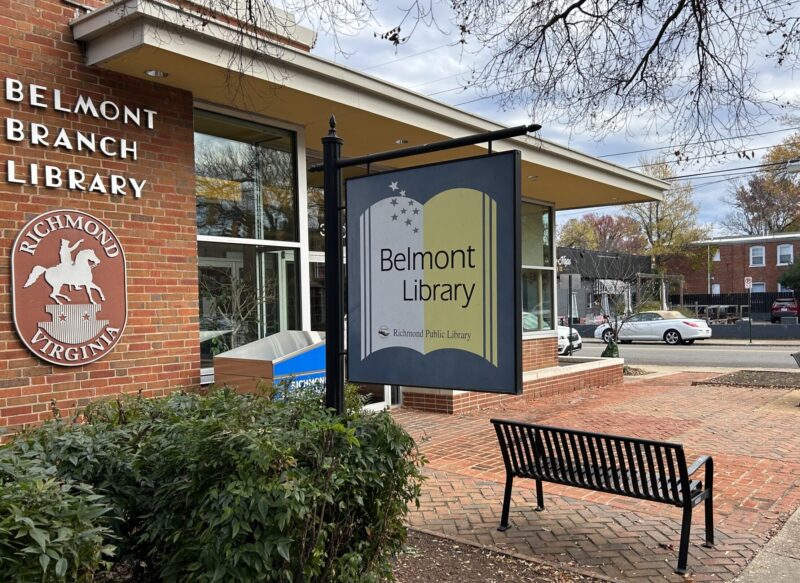
Broad Rock Branch Library – 4820 Old Warwick Road
In 2022, three bioretention basins that intercept stormwater from the library’s roof and parking area were installed, a total of 64 native trees and shrubs were planted, and a pollinator area that features native perennials was established.
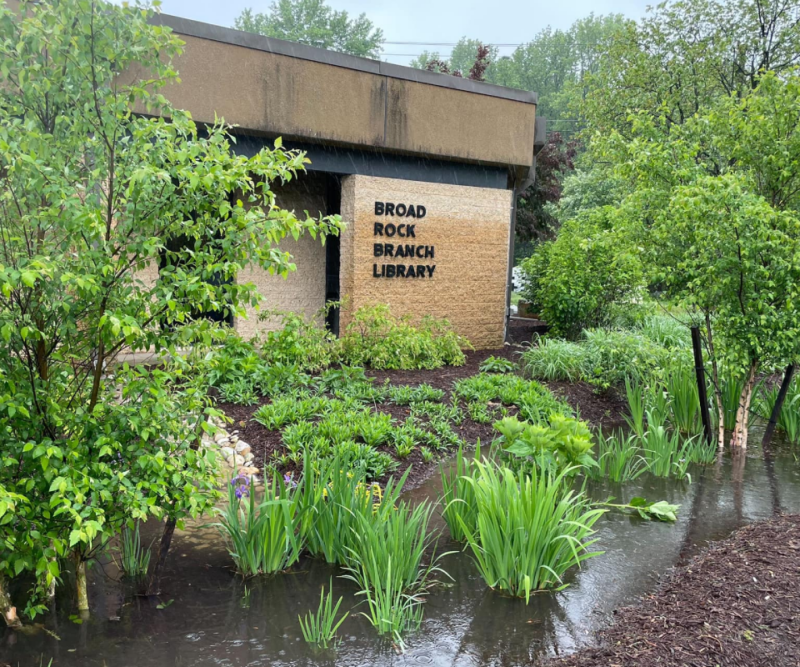
East End Branch Library– 1200 N. 25th Street
The green infrastructure project implemented at the library in 2023 is the team’s most ambitious to date. Seven bioretention basins installed around the library work together to manage stormwater and reduce the speed of vehicular traffic. The bioretention basins intercept stormwater runoff from N. 25th Street, R Street, and the library’s parking area. 14 trees, 69 shrubs, and 235 herbaceous plants were planted around the library. Street trees were planted along R Street and N. 24th Street to expand tree canopy in the neighborhood around the library in 2023.
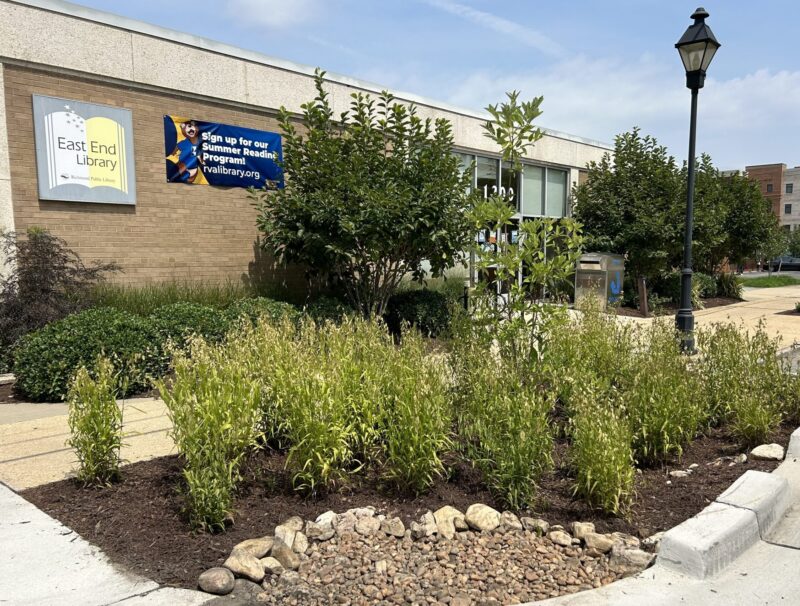
Ginter Park Branch Library – 1200 Westbrook Avenue
The first phase of the green infrastructure site plan for Ginter Park Branch Library was implemented in early 2025. This phase of construction included the installation of three bioretention basins by contractor, Exact Stormwater Management, and conservation landscaping areas featuring regionally native plants. Plants were installed with support from community volunteers and the Greening Richmond Public Libraries grounds maintenance partner, SOAR365. The second phase of the project, which will include the installation of a permeable paver system, benches, and a shade structure, is scheduled to be complete in 2025.
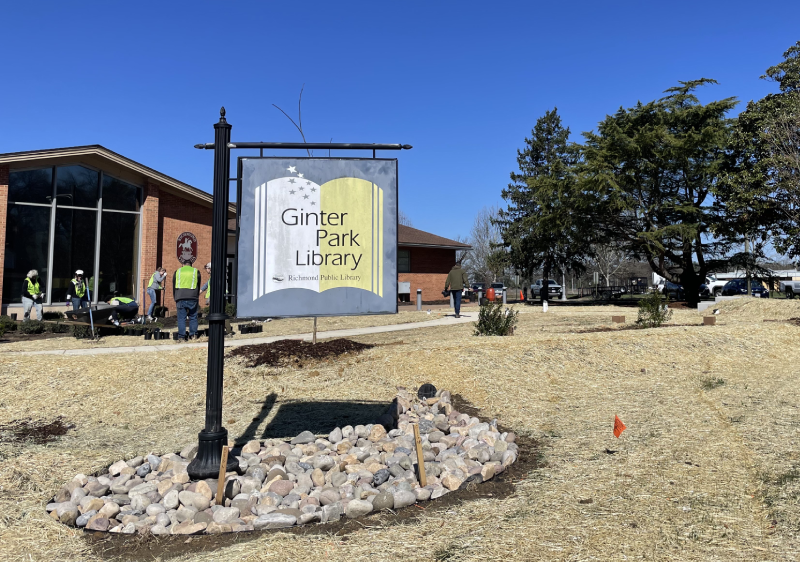
Hull Street Branch Library – 1400 Hull Street
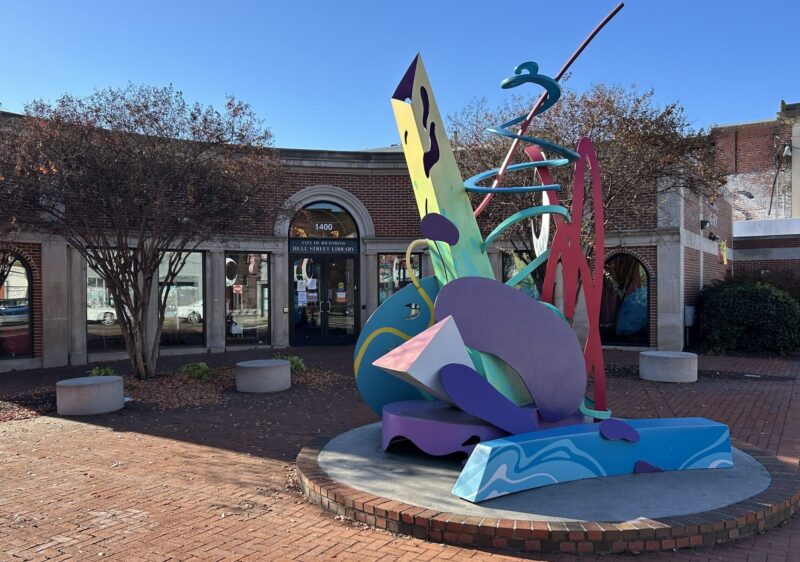
North Avenue Branch Library – 2901 North Avenue
In 2022, a bioretention basin that intercepts stormwater from roughly half of the library’s roof was installed, a total of 44 trees and shrubs were planted, and a pollinator area that features native perennials was established. Street trees were planted in the neighborhood around the library to expand tree canopy in 2022, 2023 and 2024.
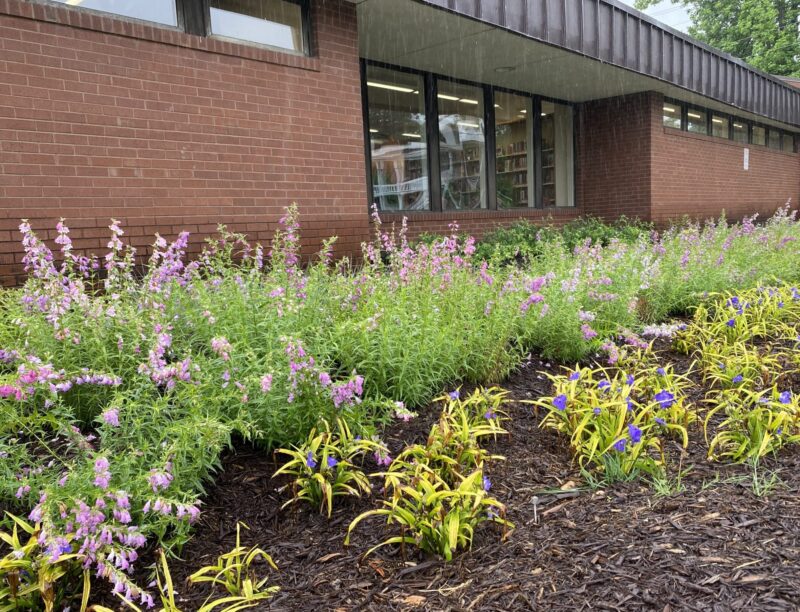
West End Branch Library – 5420 Patterson Avenue
In 2022, three bioretention basins that intercept stormwater from the library’s roof and parking area were installed and a total of 69 native trees and shrubs were planted on library grounds in 2022. Street trees were planted along Patterson Avenue in 2022.
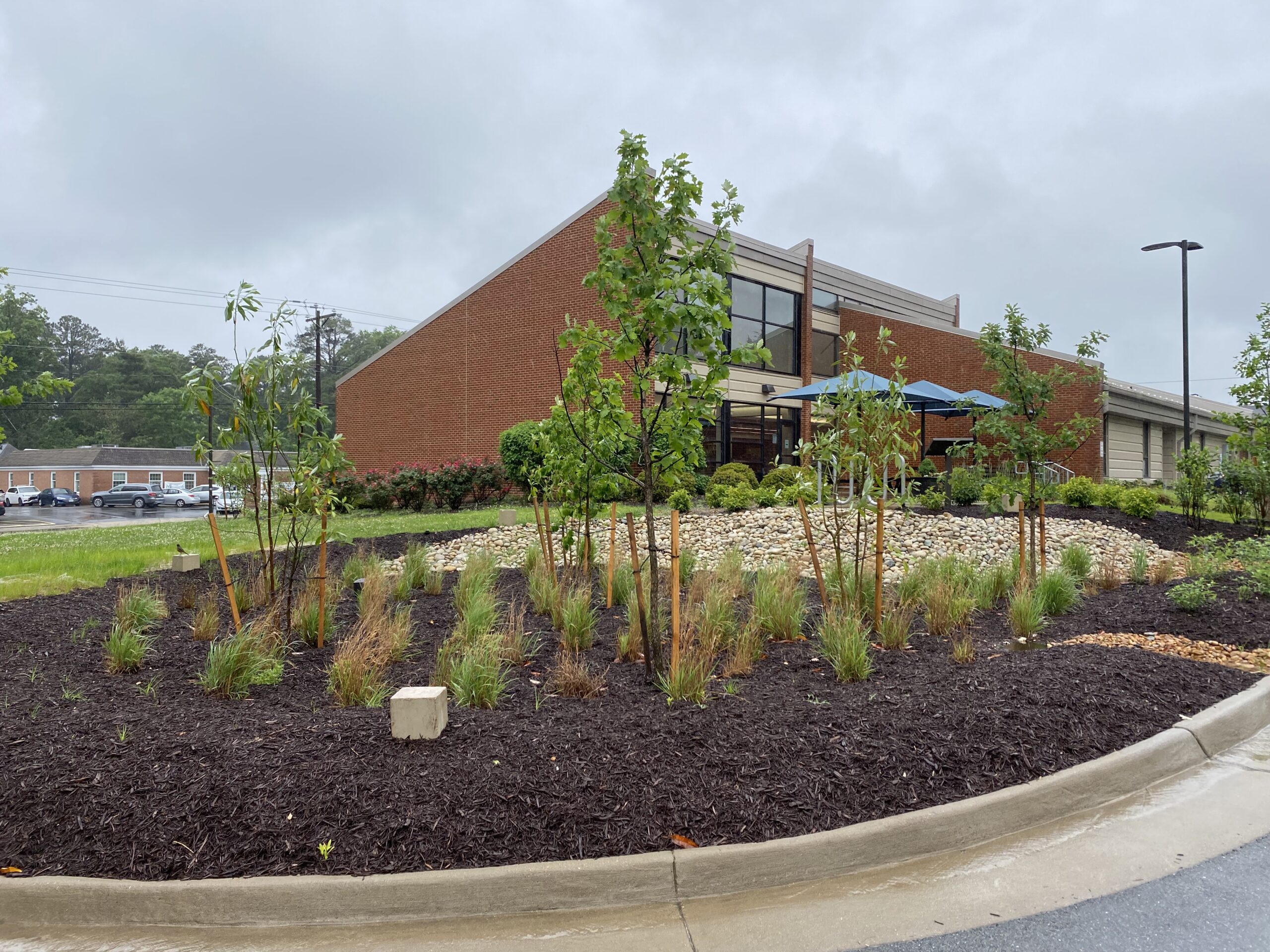
Westover Hills Branch Library – 1408 Westover Hills Blvd
The Westover Hills Library Advisory Group began the Rain Garden project in 2015. In 2019, additional green infrastructure including rain gardens and conservation landscaping was added to library grounds. 225 regionally native plants were added to library grounds in 2024.
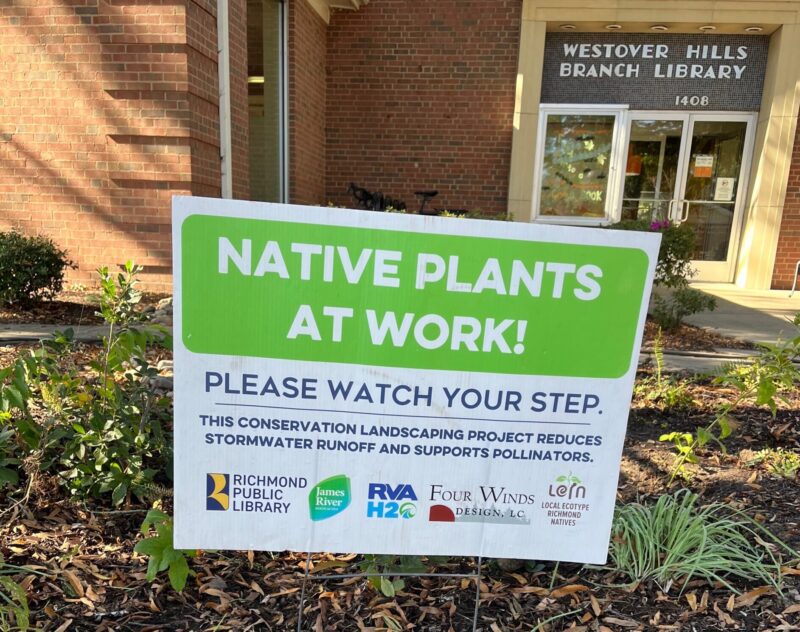
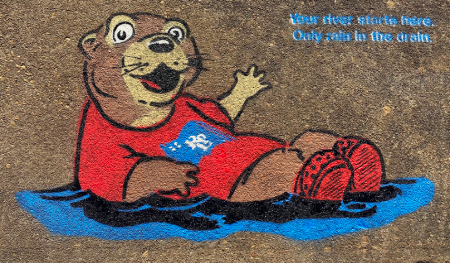
Every time it rains, pollutants including sediment, fertilizers, herbicides, pesticides, and bacteria from pet waste flow from our yards into local waterways via stormwater runoff. Stormwater pollution adversely impacts the health of the James and threatens the health of people and wildlife. River Hero Homes is a community of stewards that realize the first step to a healthier James River starts at home. Implementing river-friendly conservation practices at homes is as easy as properly disposing of pet waste, using native plants, reducing the use of fertilizers, herbicides, and pesticides, and conserving water.
Go Green At Home!
Sign up for rain barrel workshop notifications
The James River Association offers rain barrel workshops at Richmond Public Library branches throughout the year. Sign up to receive a notification when registration opens.
Get Involved as a Green Infrastructure Steward
The James River Association’s Green Infrastructure Stewards are volunteers who work alongside our staff members to maintain stormwater best management practices, including rain gardens and conservation landscaping, installed through the Greening Richmond Public Libraries initiative. Ongoing stewardship ensures practices installed on library grounds reduce stormwater runoff as intended, while also ensuring communities have access to welcoming and well-maintained green spaces. Volunteers who participate in stewardship events will have opportunities to learn about the Greening Richmond Public Libraries initiative, green infrastructure and stormwater best management practices, and stewardship skills that can be applied at home and beyond.
Many Thanks to our Partners
The Greening Richmond Public Libraries initiative is made possible by generous support from Altria, Arbor Day Foundation, Richmond Department of Public Utilities/RVAH2O, Richmond’s Office of Sustainability, Richmond Public Library Foundation, United States Environmental Protection Agency through grants from the National Fish and Wildlife Foundation and Virginia Department of Environmental Quality, and Virginia Department of Forestry. Project partners include Richmond Public Library, Richmond Department of Public Utilities/RVAH2O, Four Winds Design, James River Association, and PlanRVA.

